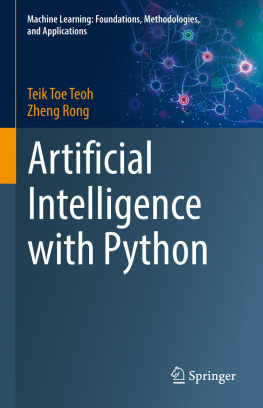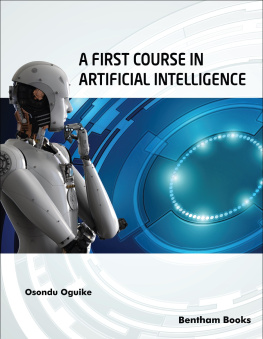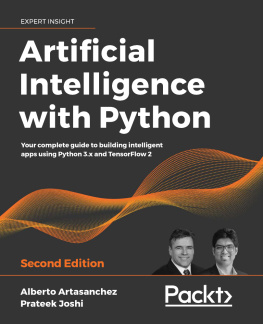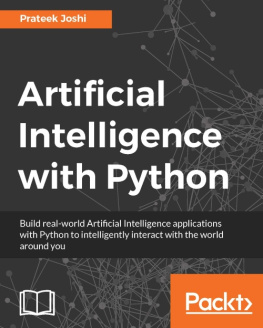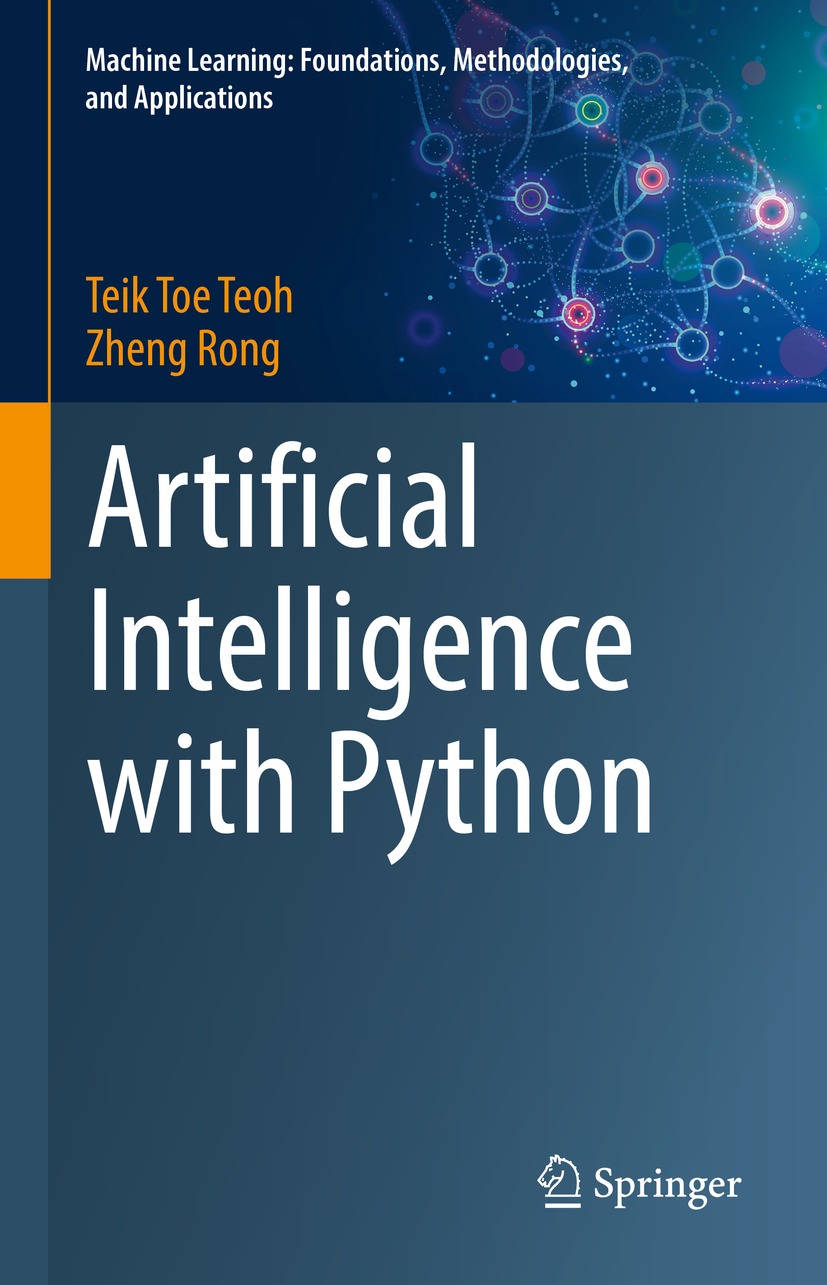Machine Learning: Foundations, Methodologies, and Applications
Series Editors
Kay Chen Tan
Department of Computing, Hong Kong Polytechnic University, Hong Kong, China
Dacheng Tao
University of Technology, Sydney, Australia
Books published in this series focus on the theory and computational foundations, advanced methodologies and practical applications of machine learning, ideally combining mathematically rigorous treatments of a contemporary topics in machine learning with specific illustrations in relevant algorithm designs and demonstrations in real-world applications. The intended readership includes research students and researchers in computer science, computer engineering, electrical engineering, data science, and related areas seeking a convenient medium to track the progresses made in the foundations, methodologies, and applications of machine learning.
Topics considered include all areas of machine learning, including but not limited to:
Decision tree
Artificial neural networks
Kernel learning
Bayesian learning
Ensemble methods
Dimension reduction and metric learning
Reinforcement learning
Meta learning and learning to learn
Imitation learning
Computational learning theory
Probabilistic graphical models
Transfer learning
Multi-view and multi-task learning
Graph neural networks
Generative adversarial networks
Federated learning
This series includes monographs, introductory and advanced textbooks, and state-of-the-art collections. Furthermore, it supports Open Access publication mode.
More information about this series at https://link.springer.com/bookseries/16715
Teik Toe Teoh and Zheng Rong
Artificial Intelligence with Python

Logo of the publisher
Teik Toe Teoh
Nanyang Business School, Nanyang Technological University, Singapore, Singapore
Zheng Rong
Nanyang Technological University, Singapore, Singapore
ISSN 2730-9908 e-ISSN 2730-9916
Machine Learning: Foundations, Methodologies, and Applications
ISBN 978-981-16-8614-6 e-ISBN 978-981-16-8615-3
https://doi.org/10.1007/978-981-16-8615-3
The Editor(s) (if applicable) and The Author(s), under exclusive license to Springer Nature Singapore Pte Ltd. 2022
This work is subject to copyright. All rights are solely and exclusively licensed by the Publisher, whether the whole or part of the material is concerned, specifically the rights of translation, reprinting, reuse of illustrations, recitation, broadcasting, reproduction on microfilms or in any other physical way, and transmission or information storage and retrieval, electronic adaptation, computer software, or by similar or dissimilar methodology now known or hereafter developed.
The use of general descriptive names, registered names, trademarks, service marks, etc. in this publication does not imply, even in the absence of a specific statement, that such names are exempt from the relevant protective laws and regulations and therefore free for general use.
The publisher, the authors and the editors are safe to assume that the advice and information in this book are believed to be true and accurate at the date of publication. Neither the publisher nor the authors or the editors give a warranty, expressed or implied, with respect to the material contained herein or for any errors or omissions that may have been made. The publisher remains neutral with regard to jurisdictional claims in published maps and institutional affiliations.
This Springer imprint is published by the registered company Springer Nature Singapore Pte Ltd.
The registered company address is: 152 Beach Road, #21-01/04 Gateway East, Singapore 189721, Singapore
Preface
This book is a practical guide to Python programming and artificial intelligence, written by Dr. Teoh Teik Toe . It contains many articles, notes, and lessons learnt on Python programming, artificial intelligence, and deep learning during Dr. Teohs career as a deep learning practitioner and a trusted advisor.
Dr. Teoh has been pursuing research in big data, deep learning, cybersecurity, artificial intelligence, machine learning, and software development for more than 25 years. His works have been published in more than 50 journals, conference proceedings, books, and book chapters. His qualifications include a PhD in computer engineering from the NTU, Doctor of Business Administration from the University of Newcastle, Master of Law from the NUS, LLB and LLM from the UoL, and CFA, ACCA and CIMA. He has more than 15 years experience in data mining, quantitative analysis, data statistics, finance, accounting, and law and is passionate about the synergy between business and technology. He believes that artificial intelligence should be made easy for all to understand and is eager to share his knowledge of the field.
Zheng Rong is a software engineer with 4 years of experience. He embraces the ambiguity of data and enjoys the challenges presented by business problems. He has 3 years of teaching experience in data mining and data science, and coauthored three journal publications on artificial intelligence and deep learning. He is interested in making artificial intelligence programming and technology easy to understand for all, including those from a non-technical background.
The field of artificial intelligence is very broad. It focuses on creating systems capable of executing tasks which would require some form of human intelligence. In-depth knowledge and understanding of the field is required to be able to develop good artificial intelligence programs. The concepts used in self-driving cars and virtual assistants like Amazons Alexa may seem very complex and difficult to grasp. Entering the field of artificial intelligence and data science can seem daunting to beginners with little to no prior background, especially those with no programming experience.
Throughout his career, Dr. Teoh has delivered many lectures to students from all walks of life about artificial intelligence. There were many students who had limited experience in programming and began with no knowledge of artificial intelligence. However, under his guidance, they eventually gained confidence in writing their own artificial intelligence programs. Through the materials compiled in this book, he hopes to empower more beginners who are eager to study artificial intelligence and enrich their learning process. Hence, the aim of Artificial Intelligence in Python is to make AI accessible and easy to understand for people with little to no programming experience through practical exercises. By going through the materials covered in this book, newcomers will gain the knowledge they need on how to create such systems, which are capable of executing tasks that require some form of human-like intelligence.
This book will begin by introducing readers to various topics and examples of programming in Python, as well as key concepts in artificial intelligence. Python will be introduced, and programming skills will be imparted as we go along. Concepts and code snippets will be covered in a step-by-step manner to guide and instill confidence in beginners. Complex subjects in deep learning and machine learning will be broken down into easy-to-digest content and examples. Basics of artificial intelligence, such as classification and regression, will be imparted to build a solid foundation for beginners before moving to more advanced chapters. Artificial intelligence implementations will also be shared, allowing beginners to generate their own artificial intelligence algorithms for reinforcement learning, style transfer, chatbots, and speech and natural language processing.

